15 Best Looking NES Games Ever
These games prove that the NES was more of a graphical powerhouse than you probably gave it credit for.

Nowadays, gamers tend to complain if the newest title doesn’t at least maintain a solid 60 FPS in full 4K. That’s a far cry from gaming’s early days when the humble NES was showing that console games didn’t need arcade-level hardware to stun us with some truly visually impressive games.
Granted, back in the ‘80s, we were happy if a game just kind of looked like its box art. While the NES is still beloved for the massive steps forward it took from earlier consoles, and for introducing the world to the likes of Super Mario Bros., Metroid, and The Legend of Zelda, it’s also known for a large library that varied widely in terms of visual quality. There are reasons why you might not think of the NES when you think of the absolute best graphics gaming has ever offered.
Still, while many early NES games barely looked better than Atari 2600 titles, some developers learned the ins and outs of the hardware in ways that allowed them to produce some truly impressive results. A few NES games even came close to looking like their 16-bit counterparts. So whenever you’re tempted to write off NES graphics as “simple,” show a little respect to the 15 best-looking NES games ever.
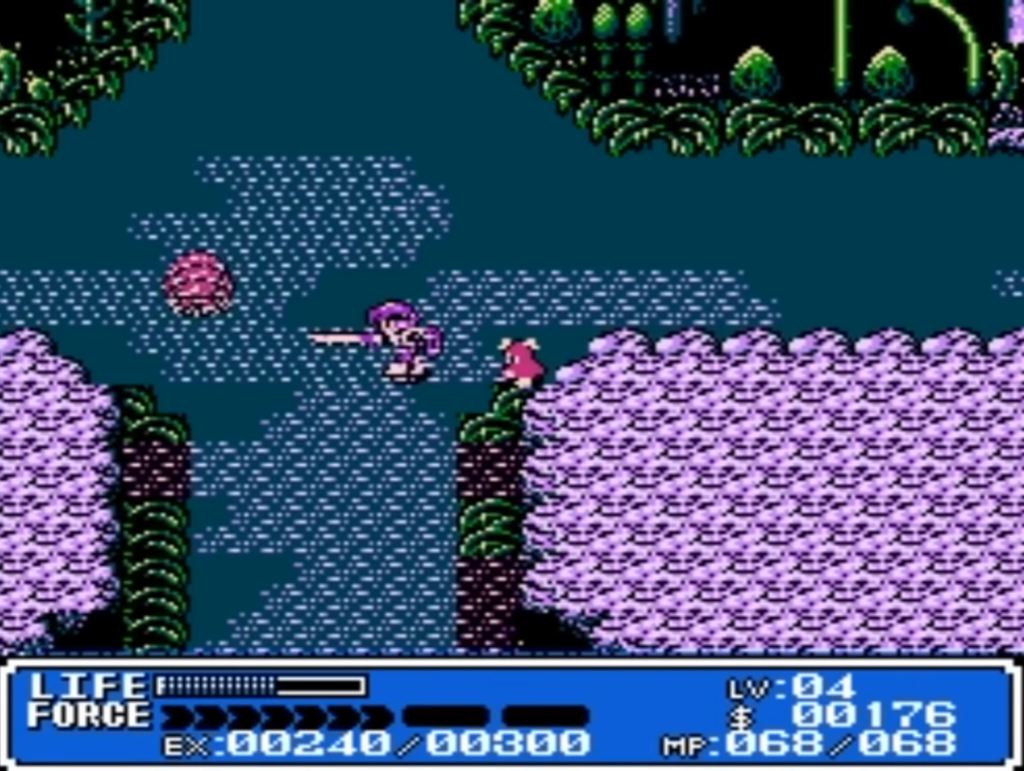
15. Crystalis
Plenty has been written about how the gameplay of Crystalis was well ahead of its time, but that mechanically ambitious title was no slouch in the graphics department either. Despite boasting one of the larger worlds of any NES game, Crystalis also featured plenty of highly detailed towns, NPCs, and enemies that all brought it more in line with modern RPGs than its console contemporaries.
But what really puts Crystalis on this list is the game’s amazing elemental and magic effects. Even if it looks primitive now, Crystalis went all out with graphical features that have become mainstays in the many titles it inspired.
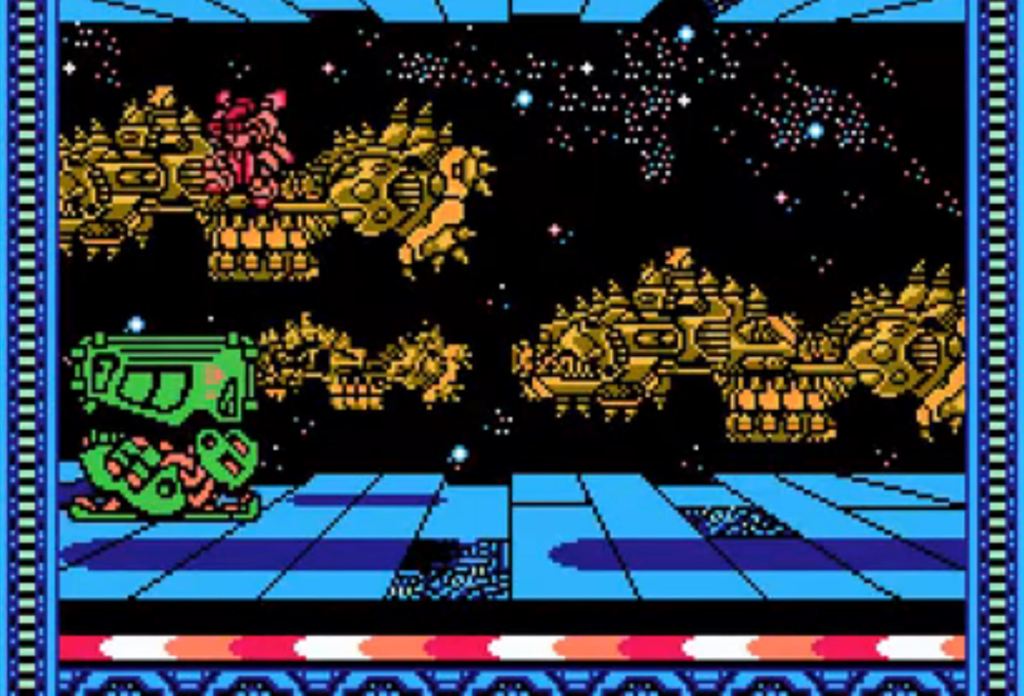
14. Metal Storm
Metal Storm is another game that feels like it came from the future. This title employs a host of graphical tricks in almost every scene to give levels the appearance of constantly scrolling backgrounds. At times, it’s almost a little too frenetic as it’s a bit disorienting to see that kind of animation so consistently in an NES game. Of course, similar styles would become the standard in most shooters just a few years later.
Metal Storm also deserves a lot of credit for making the ability to reverse gravity a major part of its gameplay; an idea that wasn’t even really popularized again until almost two decades later with the release of the indie hit VVVVVV.
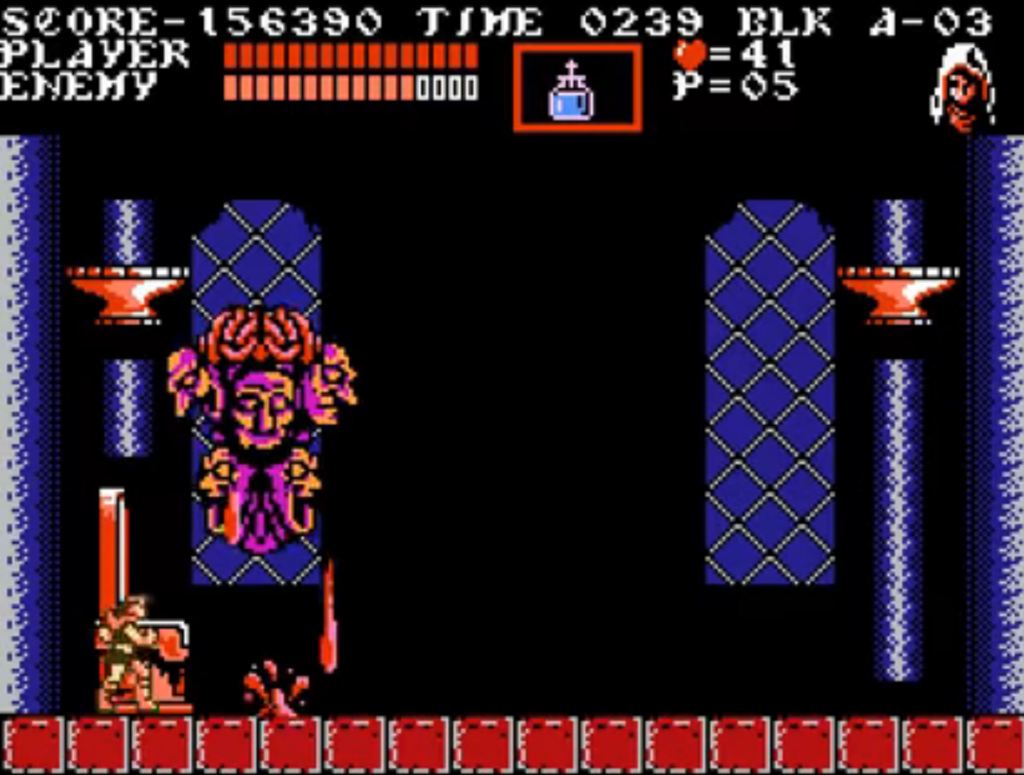
13. Castlevania III: Dracula’s Curse
All three of the NES Castlevania games look pretty good, but Dracula’s Curse easily makes this list thanks to the additional animations in its backgrounds and its impressively large, and well animated, enemy sprites. With its branching paths, additional companion characters, and graphics that push the limits of what the NES is capable of, this is truly a game that truly showcased that the NES could do so much more than it sometimes gets credit for.
Not only that, but with its gothic look and rocking soundtrack, Dracula’s Curse is one NES game that really succeeds at building a mood. This is about as good as action horror gaming got in the early ‘90s.
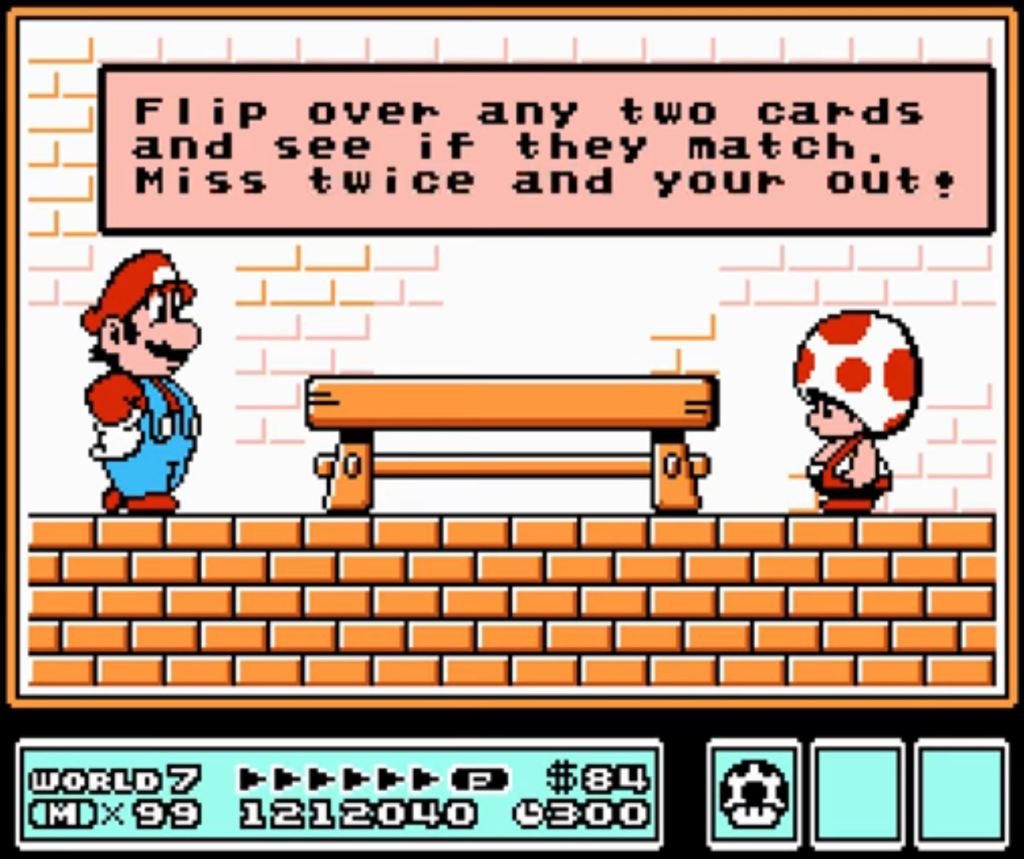
12. Super Mario Bros. 3
Given how much graphics technology has progressed over the last few decades, it’s rare to see a modern sequel make the massive graphical jump like the one Super Mario Bros. 3 made over its predecessors. Gone was the blocky (but still charming) Mushroom Kingdom of the first game. Instead, Super Mario Bros. 3 featured various types of levels that ranged from the desert to the skies high above. No longer was Mario stuck with only his original and fire flower form. In Super Mario Bros. 3, he could wear everything from a raccoon tail to a frog suit. Even giant enemies made an appearance throughout this adventure!
Super Mario Bros. 3 remains a master class in game design. Even after the release of a couple of excellent retro remasters and remakes over the years, the NES original still holds up incredibly well.
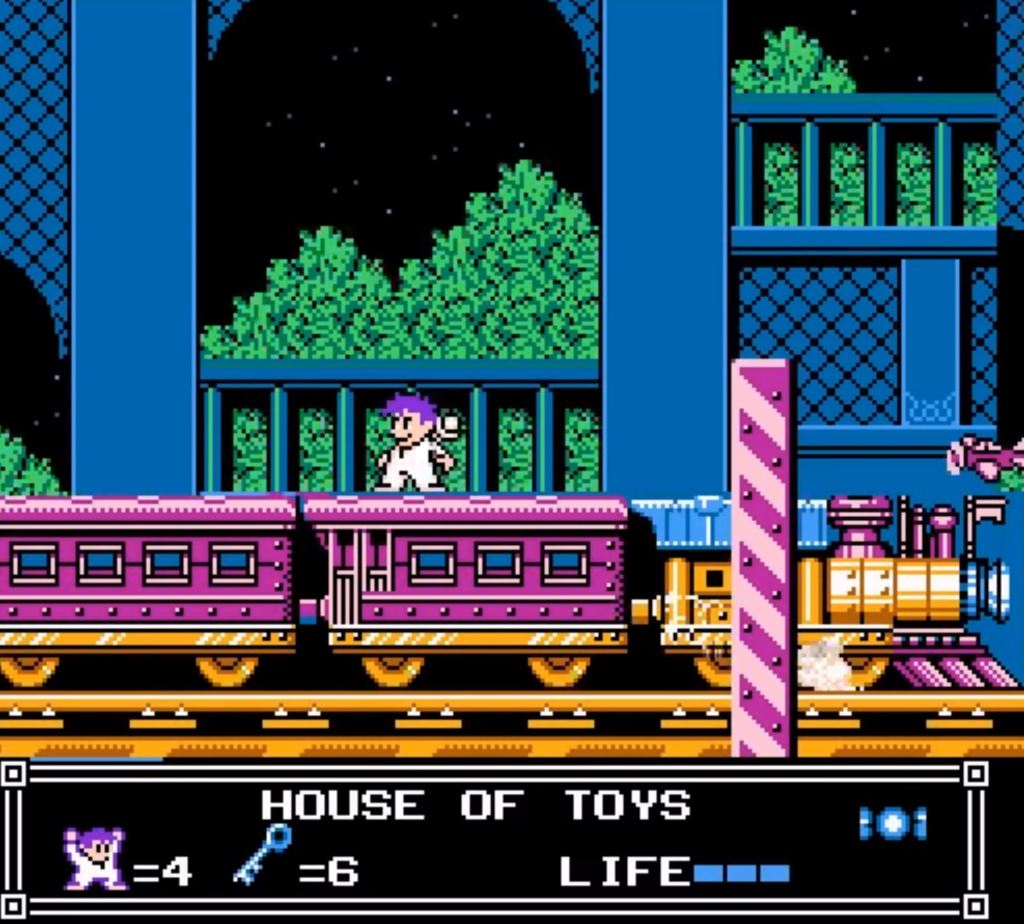
11. Little Nemo: The Dream Master
Depending on who you ask, Little Nemo is either one of the most underrated games on the NES or an unfairly difficult relic of an especially difficult era. Either way, there’s no denying that it’s one of the best-looking games on the system.
Released in 1990, when Capcom was well versed in the intricacies of programming for the NES, Little Nemo leaned into its source material with eight unique beautifully crafted levels based on dreams. Even the opening cutscene is one of the best animated and cinematic of the era. It’s easy to see that the developers really cared about making something special with Little Nemo, which is why it’s stood the test of time better than other 8-bit platformers.
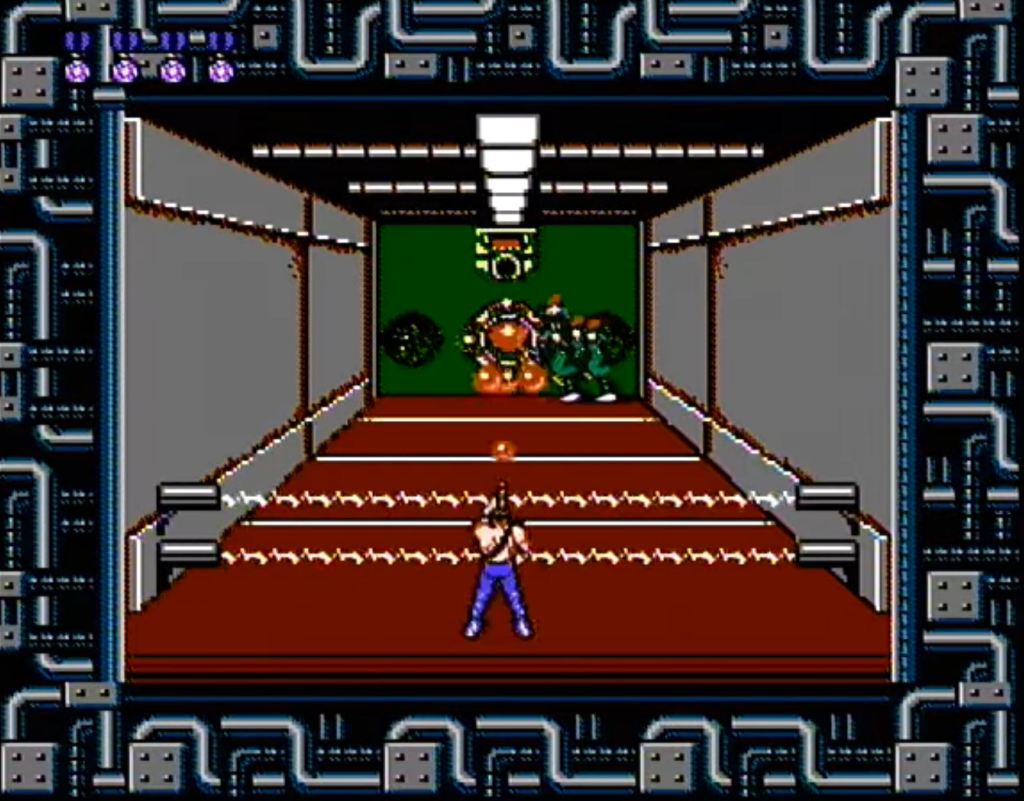
10. Contra
Contra was one of the first games to establish that the NES could handle ports that were just as good, if not better than, the original arcade titles. Yes, there are obvious graphical differences between the two versions of this classic action game, but the art style of the NES version is arguably superior to the washed-out colors of the arcade version. Either way, this port’s longer levels and tighter controls it the preferred option for most Contra players.
But the most impressive thing about this port of Contra from a technical standpoint is that the varied levels, big alien sprites, 3D passageways, and even co-op action that defined the arcade original all translated beautifully to the NES with barely any slowdown.
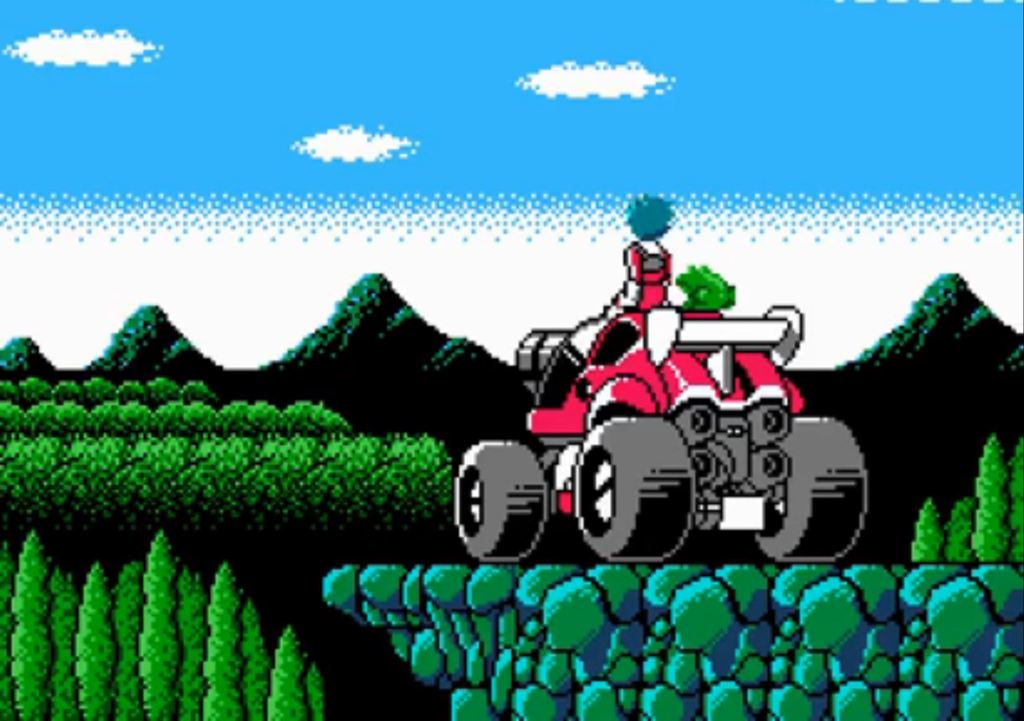
9. Blaster Master
In 1988, the NES was about to face its first real competitor with the release of the 16-bit Sega Mega Drive in Japan, but Blaster Master was among the titles that showed Nintendo’s first console still had plenty of life left in it.
With its mix of sidescrolling and overhead shooting, Blaster Master was one of the first games to do two very different styles of gameplay extremely well. Regardless of how you were playing, though, the game looked fantastic thanks to its large, detailed sprites. It may not have quite looked like a 16-bit game, but it looked leagues better than most NES games that came before it and helped convince many gamers there was no need to pick up Sega’s console.
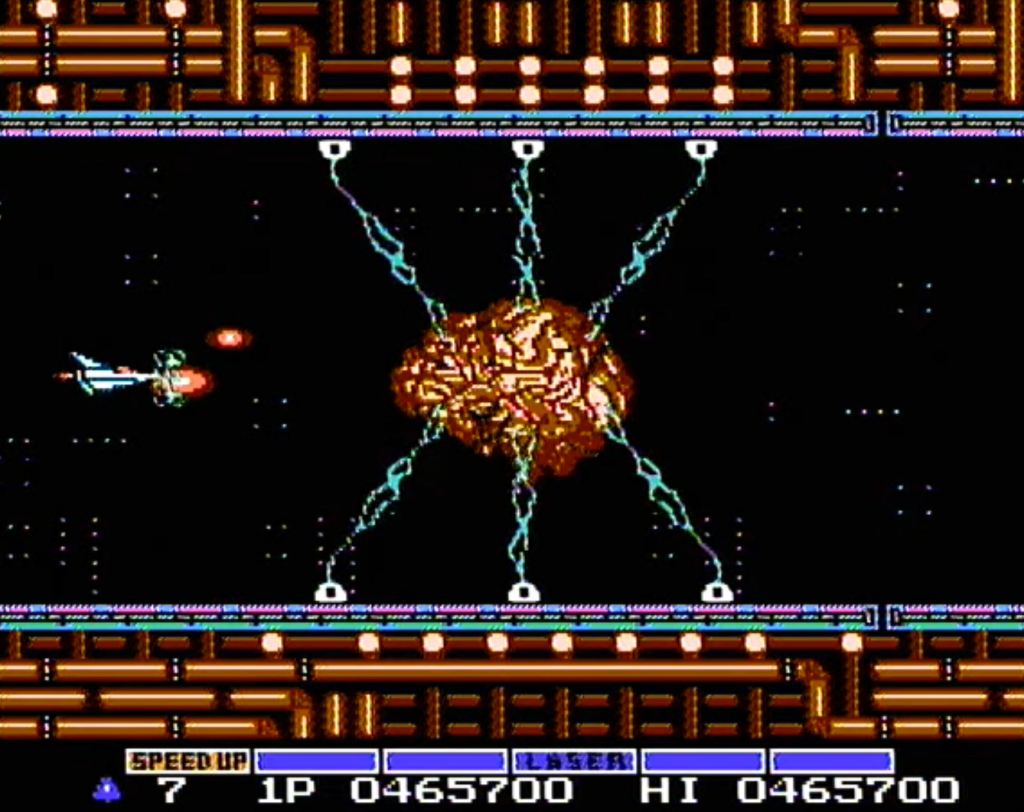
8. Gradius
Gradius was the first NES game Konami released in North America, marking an impressive debut for the now-legendary (if recently maligned) publisher. While some stages were modified from the original arcade game, Gradius looks pretty close to its original version thanks to some amazingly detailed sprites and only a minor level of flickering when the action gets hectic.
The NES port of the sequel is an equally impressive technical achievement, though, for reasons that aren’t entirely clear, Konami never released it outside of Japan.
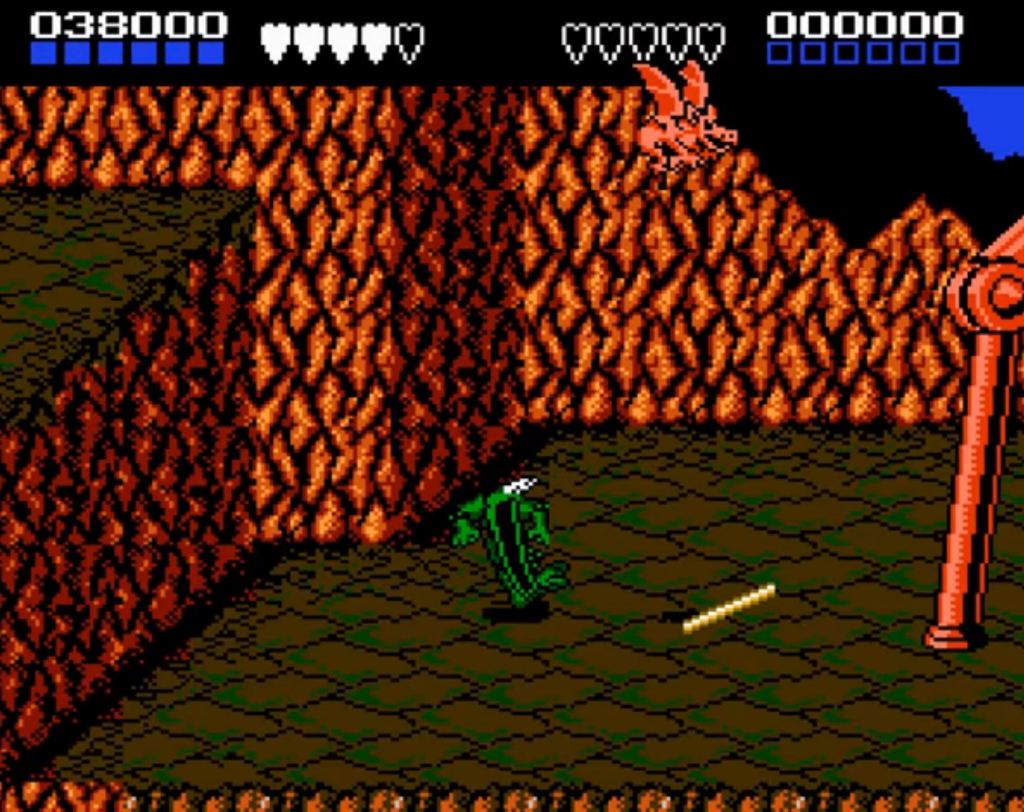
7. Battletoads
Battletoads is best remembered now for its ridiculously high difficulty, but it’s also one of the best-looking NES games. The game’s strange alien vibe really lent itself well to some unique color choices that work wonderfully with the Saturday morning cartoon style of the toads with attitude and their bizarre enemies.
Granted, few gamers (legitimately) made it past that damn hoverbike level back in the day, but trust me when I say that the whole game is as much of a visual feast as those early levels are. If anything, this game saved some of its more impressive visuals for stages that many gamers sadly never got the chance to see for themselves.
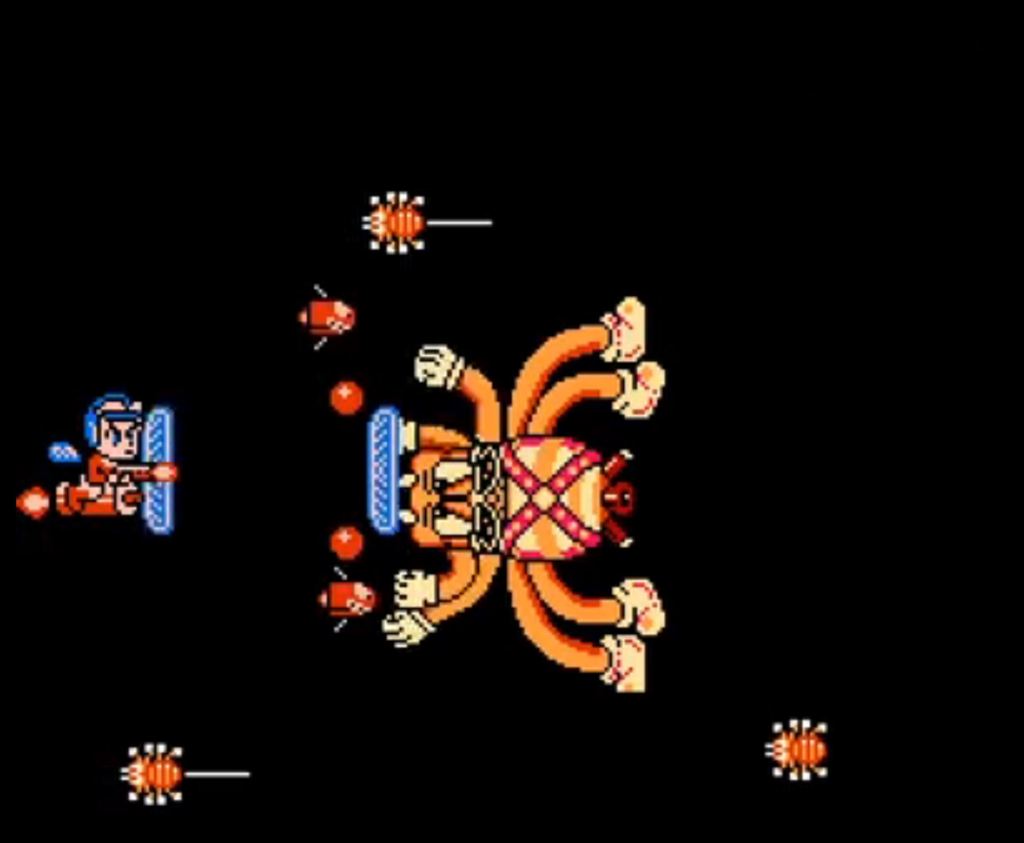
6. Insector X
To be honest with you, the NES version of this game trails both the arcade original and Mega Drive port in terms of raw graphics. However, it still manages to be one of the best-looking games on the NES.
While the main character and enemy sprites in this side-scrolling shooter are unusually large and detailed for the era, what really makes this game stand out are the highly detailed backgrounds that stand toe-to-toe with better-known NES games. Unfortunately, Insector X was never released outside of Japan, so there’s a good chance you didn’t get the chance to grow up with this one. Fortunately, the entire game is in English, so it’s still fairly accessible to Western gamers who are able to find…some way to play it today.

5. Little Samson
One of the weirder things about the NES library is that some of the console’s best-looking games were also largely ignored at release. Granted, part of the reason that seemed to be the case is that stunning 8-Bit titles like Little Samson were released after the launch of the SNES when more gamers were focused on the graphical power of Nintendo’s 16-bit console. Still, it’s mystifying just how little attention this gem received back in the day when it looked and played as beautifully as it did.
Simply put, Little Samson is among the very best platformers on the NES. Highlighted by the ability to switch between four playable characters (including a dragon and golem) mid-level, this game also featured some stunning technological accomplishments. Specifically, Kikira the Dragon is one of the best sprites on the NES and looks even cooler going through the game’s beautifully detailed levels that include everything from caves and castles to volcanoes.
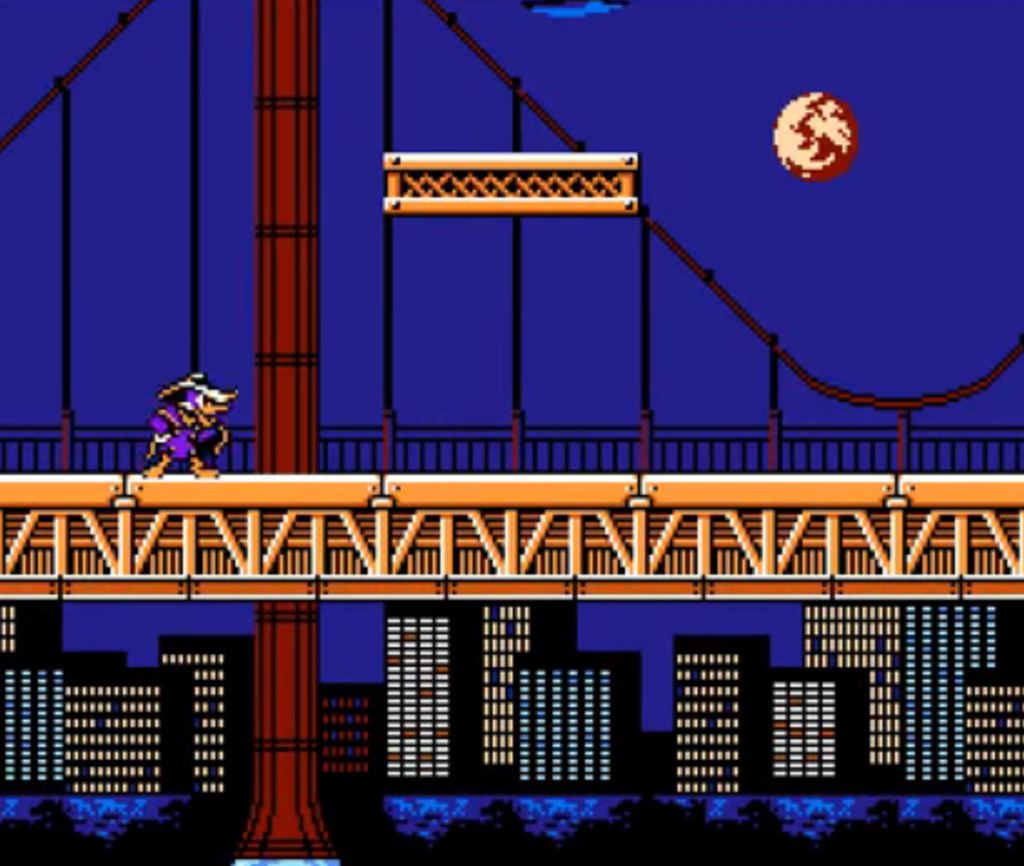
4. Darkwing Duck
Capcom was known for producing a string of excellent Disney platformers during the NES era, and, given how much experience the developer had with the console by the early ‘90s, it really shouldn’t come as a surprise that Darkwing Duck ended up being one of the most graphically advanced games on the system.
Capcom squeezed an impressive amount of color out of that console in every one of this game’s stunning stages. Parts of this game actually look closer to a SNES title. Darkwing Duck himself looks like the spitting image of his cartoon counterpart, and there are even a handful of brief cutscenes that might be the very best on the NES.
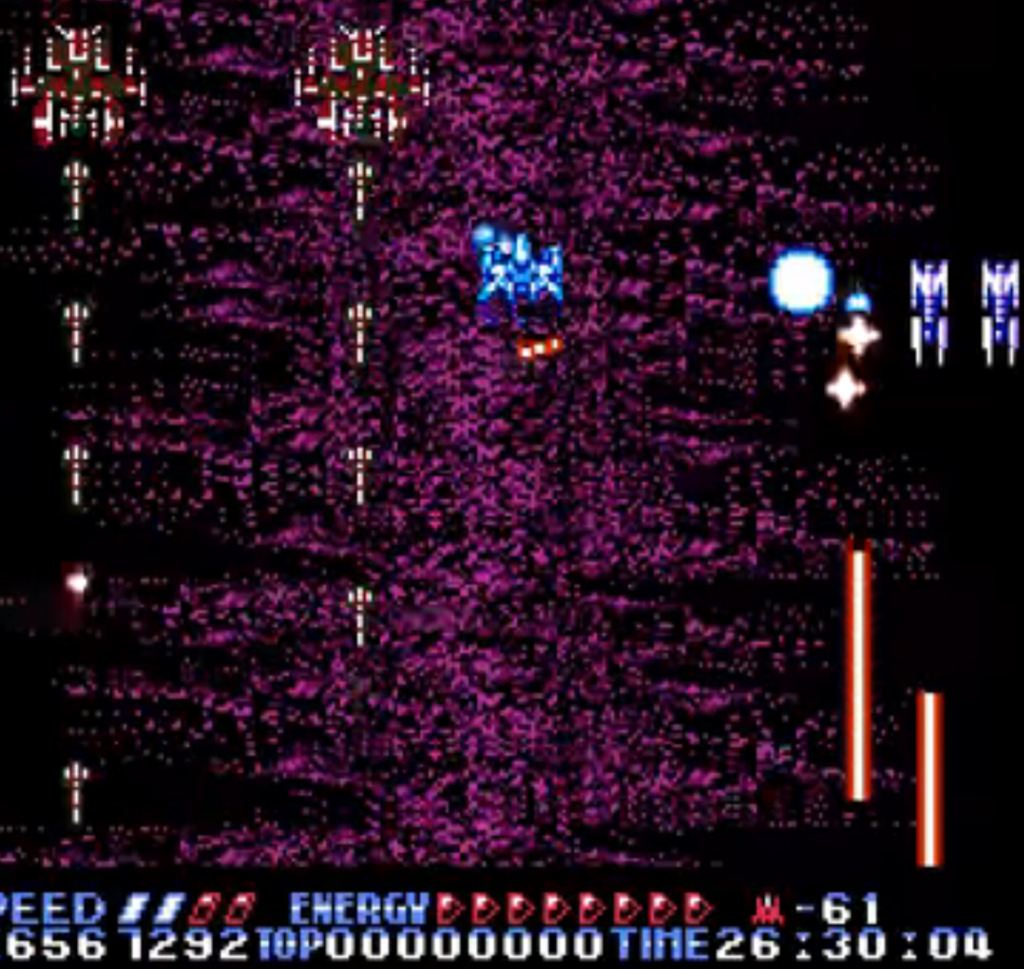
3. Recca
Developed in 1992 as part of a Japanese shooting game competition known as “Summer Carnival,” Recca was created with one goal in mind: to push the Famicom hardware to its absolute limits. In that regard, Recca is a massive success. The game is blindingly fast, with a constant stream of enemies, explosions, and background effects. By all accounts, the console never should have been able to run a game like this, but somehow Recca looks right at home on the 8-bit hardware.
Since it came out well after the SNES hit shelves, Recca only saw an official release in Japan (even then, it was only released in small quantities). It finally hit other regions in 2013 on the 3DS eShop, though, and it still looks fantastic all these years later.
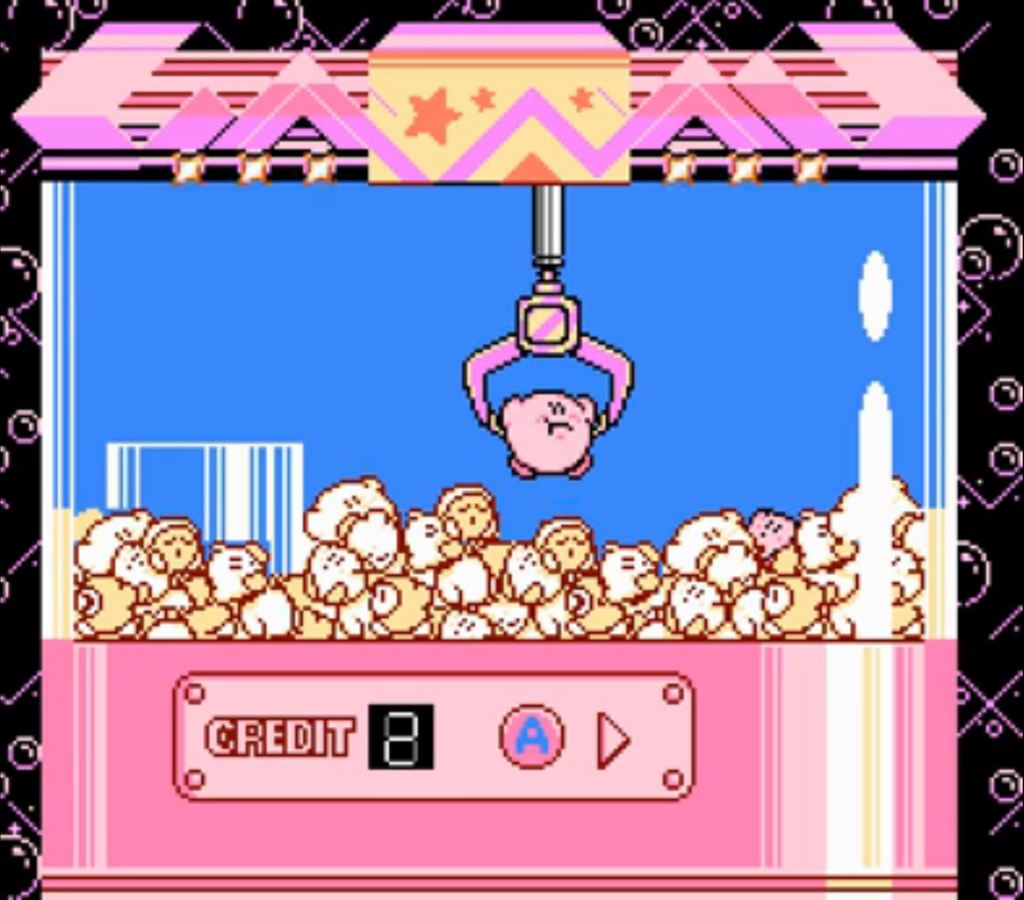
2. Kirby’s Adventure
By 1993, almost everyone had moved on to the SNES and Sega Genesis. Even Nintendo had mostly left the NES behind. However, HAL Laboratory had just had a surprise hits on its hands with Kirby’s Dream Land for the Game Boy, and the developer was tasked with porting that project to the NES. Rather than just colorize that game though, HAL went all out with a brand new game that debuted Kirby’s now-signature copying ability (along with properly adding his pink color, which had been omitted from the Game Boy title’s box art).
Kirby’s Adventure‘s graphics stand out for two reasons. First, the game’s surreal world was a perfect fit for the NES, as it ensured that the developers didn’t have to force the console to even try and render realistic humans or animals. It really let the artists go wild with their designs. Second, after years of working with the console, HAL understood the limits of the NES’ color pallet and was actually able to use those limits as an advantage by constructing bright, beautiful levels that managed to stand out by emphasizing only a couple of different colors. Kirby’s Adventure is still one of the most outstanding artistic achievements in gaming almost 30 years after its release.
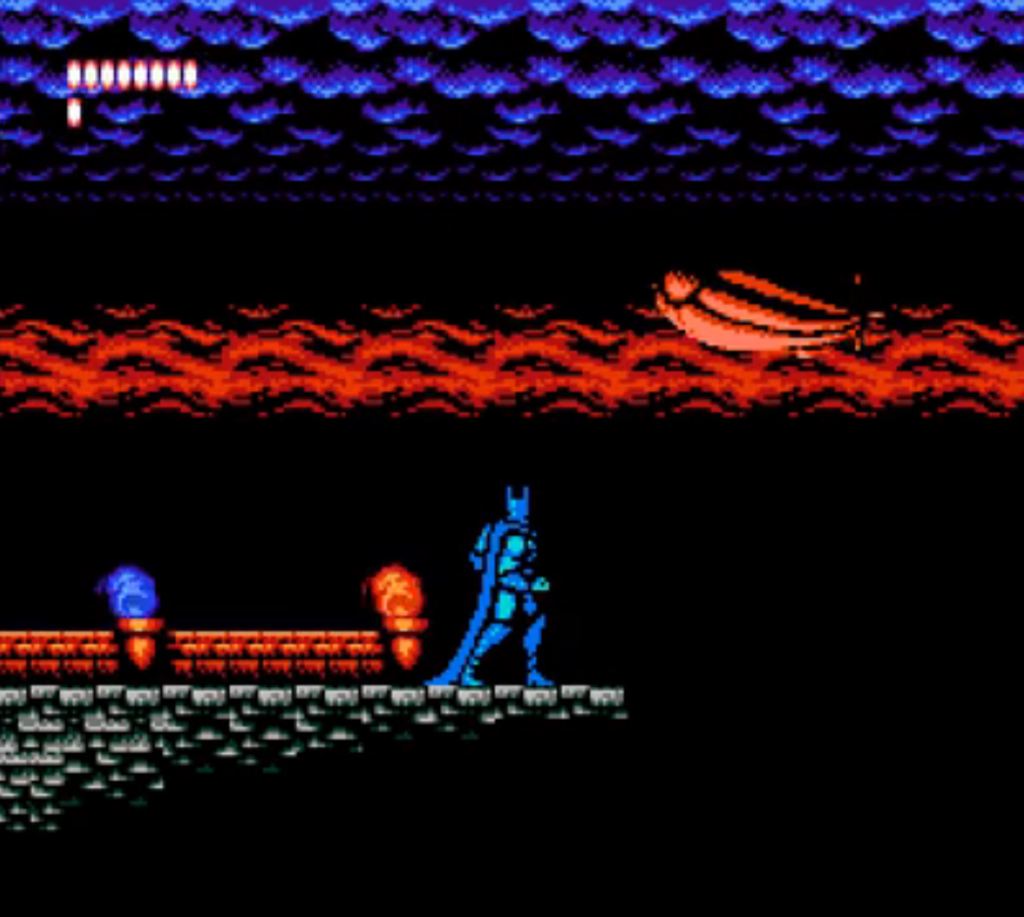
1. Batman: Return of the Joker
In 1990, Sunsoft released a Batman game to coincide with the first Tim Burton movie. It soon proved to be shockingly good (especially for a licensed game of the time) and quite a few people played it. Visually, that game looked…fine, but wasn’t particularly special for the era. The following year, Sunsoft went back to the drawing board for a sequel that was somewhat based on the same movie but also incorporated design elements of the comics. What the developers managed to pull off with that game damn near looks like witchcraft
The Batman sprite in Return of the Joker might be the best on the NES. It’s almost comic accurate. More importantly, this game’s levels are large, varied, and highly detailed. There are even plenty of extra effects like falling snow and palm trees blowing in the wind. Somehow, they pulled all of this off with minimal flickering and slow down. Watching a playthrough of it now, Return of the Joker could easily pass for a SNES or Genesis game. It looks that good.
